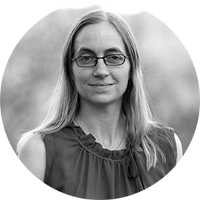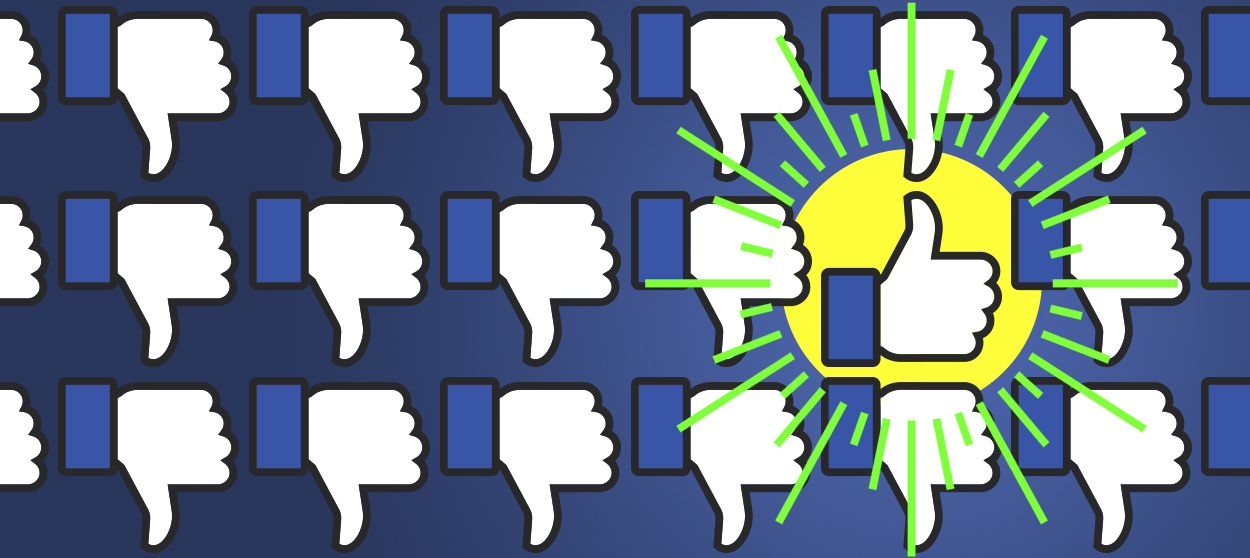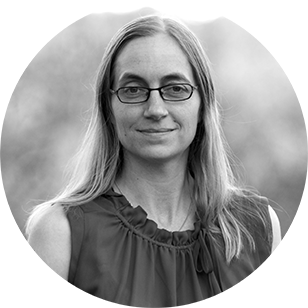Why I love Facebook
For all its faults, social media offers a lot of benefits too


A free daily email with the biggest news stories of the day – and the best features from TheWeek.com
You are now subscribed
Your newsletter sign-up was successful
I love Facebook. I figure I'd better confess this unpopular opinion now, before enlightened lawmakers decree that we can't have it anymore. Facebook CEO Mark Zuckerberg is in the dock right now, along with other Silicon Valley entrepreneurs, as we debate the impact of their creations on our society. Almost everyone, it seems, hates social media nowadays, with some going so far as to suggest that we should simply rid ourselves of this menace, entirely and for good. Josh Hawley, the Republican senator from Missouri, wrote an op ed last week denouncing Facebook and Twitter as “parasites” which “should be made to disappear”. My Facebook and Twitter friends applauded.
As an at-home mom with five kids, I have to say that this sounds fairly crazy. I recognize, of course, that social media has saddled us with some distressing new problems. It's transformed many nice people into crude attention-seekers. It threatens our privacy and our peace. But we can't just get rid of it, because we need social media. In a highly mobile, technologically advanced society, people inevitably look for new ways to stay connected, both to their loved ones and to the world at large. Social media fills that important need. We shouldn't get rid of it. We should continue working to improve it, so that future generations can reap the rewards with fewer costs.
Let's start by considering social media's impact on our ever-more-fluid workforce. Social media can be a tremendous asset in making connections, especially for the ever increasing number of us who are trying to make it in the gig economy or who are de facto excluded from more traditional networking venues.
The Week
Escape your echo chamber. Get the facts behind the news, plus analysis from multiple perspectives.

Sign up for The Week's Free Newsletters
From our morning news briefing to a weekly Good News Newsletter, get the best of The Week delivered directly to your inbox.
From our morning news briefing to a weekly Good News Newsletter, get the best of The Week delivered directly to your inbox.
Perhaps I'm being petty here, but it always feels to me like condemnations of social media are especially popular among professionally successful men who have nannies or at-home wives. They're the ones who gush about firm handshakes, civilized venues, and the unique benefits of face-to-face interaction. I understand completely! I too would prefer to forge my professional connections at the National Press Club, rather than trading barbs on Twitter in my pajama pants. I fully agree that networking would be much pleasanter over a cocktail or a plate of Eggs Benedict. For me though, the National Press Club is eleven hundred miles away, and going out even for a single evening is a rare treat. I've built up a writing career from my Minnesota bedroom, perfecting pitches while babies slept on my lap and toddlers played at my feet. At the start, I had no journalistic connections. How would any of it have been possible without social media? There's a short answer: it wouldn't.
I keep reading nowadays that social media undermines democracy. That might be true in some ways, but it also strengthens democracy by enabling a wider range of people to find access points to professional communities. Don't relegate people like me to private mommy blogs!
Of course, not everyone needs social media for professional development. For many of us, it's mainly a place to socialize. It's fun, but it's more than just entertainment. Social media helps to stave off the grimmer effects of loneliness and isolation. Those are serious problems in our society, which may explain why Facebook has more than 2 billion users in the world today.
Critics argue, though, that social media isn't really a solution to loneliness; it's actually part of the problem. Virtual friendships, they claim, are corrosive to healthy community life, as ephemeral relationships that can be broken as easily as they're formed. When an online friend gets boring or clingy, has a nervous breakdown, or adopts noxious political views, we can always just unfriend or block that person. We're obliged to be more patient with relatives, co-workers, or next-door neighbors. That can be a drag, but it's also good, because part of the point of having a community is that it's there for you even when you're not at your best. It's bad if we stop breaking bread with our neighbors because we're too busy bickering with faceless strangers.
A free daily email with the biggest news stories of the day – and the best features from TheWeek.com
In this theory, Facebook might be seen as the McDonald's of human companionship. When you're desperately hungry, a pile of French fries can seem pretty appealing. If fast food becomes the mainstay of your diet, though, you can't expect to be a healthy person. Complex human relationships, like complex carbohydrates, do a lot more for us over the long run.
Is social media really so devoid of healthy choices, though? That's not my experience. I spend most of my online time talking to old friends, siblings, or extended family. I can remember a time when I talked to my grandma exactly once each year, on my birthday. Thanks to Facebook, I now feel reasonably updated on her life. I've reconnected with friends from high school and college, and grown closer to aunts, uncles, and cousins. Maybe it's not to my credit that I need Mark Zuckerberg's help to keep up with my own flesh and blood. Did I mention, though, that I have four siblings, 33 cousins, nine aunts, eight uncles, five nieces and two nephews, all scattered around the country and world? Who has time to call all of those people? Social media is a godsend in this situation, enabling us to check in with people on our own schedules. That way, when we do get together for a reunion, it’s not necessary to distribute name tags just to remember which kids belong to whom.
It's fun to imagine some future time when I might conclude a workday by closing up my laptop and meeting friends in museums, at parties, or on restaurant patios. That would be charming, but let's be realistic. There will always be people who aren't able to do that kind of thing on a regular basis. We're caretakers, have disabilities, or perhaps we live in isolated rural areas. We may know and like scores of people, but they're out there, and we're obliged to be here. We can resign ourselves to loneliness, or we can join Facebook. Most of us choose Facebook.
I'm not blasé about the drawbacks of social media. Privacy protection is a huge concern, which we're currently debating in the public square. Social media also has toxic effects on our political discourse, enabling conspiracy theorists to find one another, even as the rest of us segregate into judgmental echo chambers where we can revel in our righteousness. Are there ways to address these problems without giving godlike powers to Silicon Valley technocrats? While we're at it, what can we do about the emotionally crippling impact social media is having on our teenagers? Clearly, there are a number of kinks to work out here.
Let's work them out. Social media may feel like a curse sometimes, but there's a reason most of us are still using it. We love Facebook because it connects us to the people we love.
Find me another "parasite" that does that.
Rachel Lu is a writer based in Roseville, Minnesota. Her work has appeared in many publications, including National Review, The American Conservative, America Magazine, and The Federalist. She previously worked as an academic philosopher, and is a Robert Novak Journalism Fellow.
